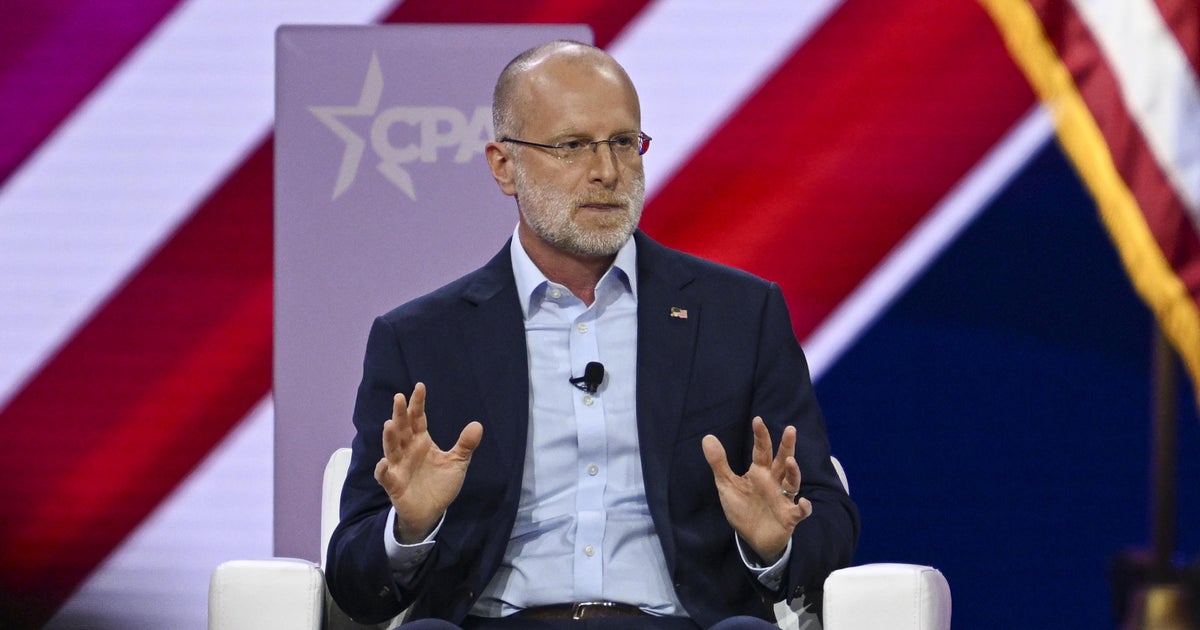Congress releases all 3,000-plus Facebook ads bought by Russians
Democrats on the House Intelligence Committee released more than 3,000 Facebook ads bought by Russian trolls, from 2015 to late 2017. Russia's Internet Research Agency was behind tens of thousands of posts on Facebook designed to create political chaos and hurt U.S. democracy, lawmakers said.
Congress gave a preview of Russian-sponsored trolling posts on Facebook during a hearing last November. On Thursday morning, it released every single purchased ad.
"The only way we can begin to inoculate ourselves against a future attack is to see first-hand the types of messages, themes and imagery the Russians used to divide us," Rep. Adam Schiff, a ranking member on the House Intelligence Committee and a Democrat from California, said in a statement.
These ads were heavily promoted during the 2016 election, with Russian trolls seeking to sow chaos.
The treasure trove of data, split into quarters from each year, totals about 8 gigabytes of Facebook posts, plus the metadata that accompanies it.
The summaries include details on what pages an ad posted on, whom the trolls were targeting, how many people saw the ad, how many people clicked on it and how long it was active.
One post from June 2016 was targeted at Facebook users in the Washington, D.C. area who were aged 16-53 and interested in Hillary Clinton or the Muslim Brotherhood. The Russian trolls paid 3,981 rubles for it, which converts to about $63. About 1,849 people saw the post, 94 of whom ended up clicking on it.
Altogether, the Russian trolls spent up to $100,000 on all the ads.
Separately, some 126 million Americans saw 80,000 organic posts, Facebook said last October. In April, the company deleted 70 Facebook accounts and 65 Instagram accounts, as well as 138 pages on Facebook run by the IRA.
Facebook said it's taken many actions since its advertising fiasco unfolded. The company has since updated its ads policy, requiring political content to be verified and labeled. The social network said it would allow people to see all the ads one account is running across Facebook, Instagram and Messenger, archiving it for the last seven years. The feature is already available in Canada and Ireland, and will launch globally in June, according to Facebook.
Facebook makes much of its money by selling hyper-targeted ads. CEO Mark Zuckerberg told Congress in April that companies paid it to direct content toward people they believed would buy their products.
From the metadata on the Russian-paid ads, it appears that the IRA knew just how effective that targeting algorithm was -- not just for selling products, but for stirring up political issues, too.
In a sponsored post from April 2016, the Russian trolls posed as "Black Matters," urging people to vote for Bernie Sanders, the Vermont senator who was then competing against Clinton in the Democratic primaries.
For 2,786.36 rubles, or $44, Russian trolls got 46,437 people to view that ad, with 5,607 of them clicking it.
The "Black Matters" page was one of the IRA's more successful pages, with over 224,000 followers subscribed to the account.
Other posts by Black Matters would target people who read BlackNews.com or HuffPost Black Voices. Facebook said it's since removed nearly one-third of the terms that the IRA used to target audiences.
The House Democrats broke down the 3,000+ ads into nine categories:
Events: Russian trolls would set up events like anti-Trump protests or pro-Muslim rallies, and promote them on Facebook. In some scenarios, they would set up both the protest and the counterprotest, hoping the confrontation would lead to conflict in real life.
They created 129 events between 2015 and 2017, which were viewed by more than 300,000 people. About 62,000 Facebook users said they would attend.
African-American Focused: These ads pretended to be a part of the Black Lives Matter movement, with images the committee called "pernicious and disturbing." The goal was to intensify racial tensions during the US election in 2016.
One account, called "Blacktivist," had more than 360,000 likes before it was shut down. One ad, posted on Instagram by @afrokingdom_, called for people to "Be ready to fight."
Immigration: The ads in this category capitalized on border security issues and anti-immigration sentiments echoing throughout the Trump campaign. One of the IRA's most popular groups, "Stop A.I.," which stood for All Invaders, had 193,813 followers.
Another called "Secured Borders" had 135,301 followers.
Second Amendment: These ads focused on pro-gun audiences, calling out to "2nd Amendment supporters, guns lovers & patriots," according to one post.
Heart of Texas: This Texas-targeted group was so popular that the House Democrats gave its ads their own category. The page had 253,862 followers, and promoted posts on several issues, including gun control, anti-Hillary ads, and immigration.
It also promoted posts calling for Texas to secede from the U.S.
LGBT: The IRA posted ads as pages like LGBT United, with content such as a "Buff Bernie" coloring book. The page also organized counter-protests.
Muslims: The Russian trolls tied their fake Muslim ad campaign to issues involving Trump and Clinton. They controlled the group United Muslims of America, which had more than 328,000 followers. This group would often come into fabricated conflict with the "Heart of Texas" group.
Veterans: The majority of the posts from Russian trolls posing as pro-military groups were anti-Clinton. These posts also mixed in legitimate content promoting veterans to build an audience, US officials said.
Candidates: The most common ads throughout 2016 heavily promoted Trump and sought to hurt Clinton's campaign. The sponsored posts called for people to go to rallies, while articles posted by groups like "Born Liberal" would support Sanders.
One promoted post by the Blacktivist group, for instance, called for a flash mob with the hashtag #HillaryClintonForPrison2016.
These 3,000-plus ads do not include 80,000 organic posts on Facebook, which the committee said it expects to make public in the future.




